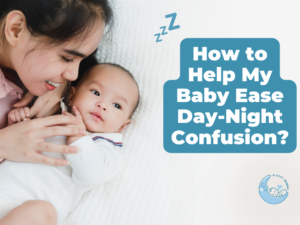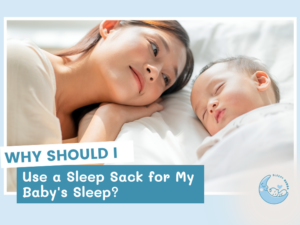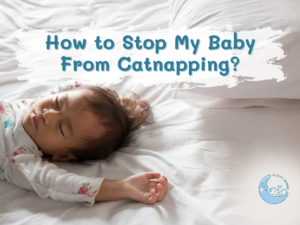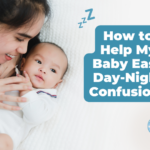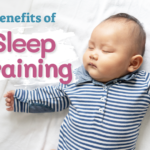Enquire Now with FREE 15 Mins Call
Will Sleep Training Affect the Bond Between My Baby and I?

As a parent considering sleep training for your baby, you might be concerned about how it will impact your bonding and attachment with your little one. The fear of letting your baby cry it out can be daunting, and you might worry that it will undermine the close bond you’re trying to build. Attachment theory studies show that children with secure attachments tend to have a greater sense of self-agency, better emotional regulation, higher self-esteem, and closer, more positive relationships throughout their lives. So, it’s natural to question whether sleep training, which involves leaving your baby to cry, can potentially disrupt this secure attachment and affect their mental well-being.
However, it’s essential to understand that engaging a certified baby sleep consultant for sleep training doesn’t have to involve letting your baby cry it out. Gentle sleep training methods can be just as effective and way less stressful for both you and your baby. It’s crucial to be 100% happy with the situation and follow your natural parenting instincts. If you don’t feel comfortable hearing your baby cry, then pick them up and soothe them. Your response to your baby’s needs is essential for building a secure attachment.
Will Sleep Training Affect the Bond Between My Baby and I?
1. Studies Support Sleep Training
Numerous studies have shown that sleep training does not have adverse effects on infant-parent attachment. In fact, with sleep training, both maternal stress and mood improve. Additionally, the baby’s sleep quality improves, leading to a well-rested baby and mom, which are necessary pre-conditions for forging secure attachments.
2. Parenting for a Secure Attachment
Secure Attachment is a psychological concept that refers to a child’s emotional bond with their primary caregiver, typically the mother or father. It is characterized by the child feeling safe, secure, and protected, allowing them to explore their environment with confidence. Securely attached children tend to have better emotional regulation, higher self-esteem, and healthier relationships throughout their lives. You can continue parenting for a secure attachment while sleep training. Be responsive to your baby’s basic needs, provide emotional support and comfort during this new challenge, and remain calm throughout the process. Your baby’s emotional regulation begins with you, and projecting calm energy is crucial for their development of resilience.
3. The Whole Relationship Matter
Bonding with your baby is built through hundreds of daily interactions between you and your child. While sleep training is an emotionally charged encounter, it represents just one aspect of your relationship. Your responsiveness and care throughout the day play a more significant role in forming a secure attachment.
4. Parents Aren’t Always 100% Attuned
Studies have shown that within a secure attachment, parents are only attuned to their baby about 30% of the time. As long as you make efforts to repair any mismatches between you and your baby, secure attachments will continue to develop. In the context of sleep training, parents may worry that leaving their baby to cry or encouraging independent sleep might disrupt the secure attachment. However, as long as parents continue to be responsive and supportive in other aspects of caregiving, sleep training is unlikely to have a negative impact on the parent-child bond. The key is to provide comfort and emotional support during the sleep training process and to maintain a loving and nurturing relationship throughout the day.
5. Parental Well-Being Matters
It’s essential to consider your well-being as a parent. Sleep training can improve maternal stress and mood, allowing you to be more present and emotionally available for your baby during waking hours. A well-rested parent can better nurture and connect with their child.
6. Longer-Term Benefits
The benefits of improved sleep through sleep training extend beyond infancy. Better sleep for both baby and parents can lead to more harmonious family dynamics, better physical and mental health, and increased overall well-being.
7. Strengthening Attachment Through Responsive Parenting
The essence of secure attachment lies in responsive parenting. When your baby’s needs are met promptly and consistently, they develop trust and confidence in their caregivers. Sleep training doesn’t have to compromise responsive parenting; instead, it can reinforce it by teaching your baby healthy sleep habits.
8. A Well-Rested Baby is a Happy Baby
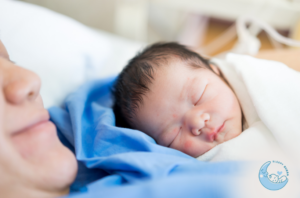
Adequate and restful sleep is crucial for a baby’s overall development and well-being. When your baby is well-rested, they are more alert, curious, and eager to engage with the world around them, strengthening the parent-child bond.
Conclusion
In conclusion, sleep training can be an effective and stress-free way to improve your baby’s sleep without jeopardizing your bonding and attachment. Gentle sleep training methods and responsive parenting go hand in hand, ensuring your baby’s well-being while fostering a secure attachment. If you have any reservations or need guidance on sleep training for your baby, consider reaching out to a certified baby sleep consultant for support and personalized advice. Why wait? Schedule a FREE 20-minute discovery call with Sleepy Bubba today, and let’s work together to create healthy sleep habits and strengthen the bond with your baby. Remember, a well-rested baby and a well-rested mom are better equipped to build a strong and loving bond.

